Forum Replies Created
- AuthorPosts
-
Next step eliminate potential failure of the Beosystem 7000’s DIN jack and data link driver for the Tape 1 socket by plugging the deck into Tape 2. (On the Beolink 1000, SHIFT then A.TAPE plays tape deck #2.) If that fails the same old way, you can either send it straight back to Hamburg or you can check the cable yourself by opening up the tape unit to check at the other end. If a break isn’t visible (or measurable with a meter preferably), then send it back to Hamburg for another (hopefully not expensive) fix.
Sorry, if you’re in the USA, you probably already guessed: you don’t. Connect a TiVo Edge for Antenna (or an old TiVo Roamio OTA) via HDMI to the Avant. Other countries are different, some even including a dual tuner with a USB recording drive! The 3 coaxial F-connectors, if you had them, would be at the top above the Ethernet jack (Satellite 1, Satellite 2, Antenna).
the function of the (relais) ‘Line In/Out’-Plug
Bridges the pre-amp output to the amp input. Imagine if you inserted an equalizer in the middle, for example. There was a custom plastic plug that ran the outs to the ins, to prevent cables dangling back there. See https://archivedforum.beoworld.org/forums/t/16926.aspx for more info.
For that matter, rather than thinking small, perhaps suggest that [Triple-Dot] or [Gear] / Music/”Open Stream URL…” become standard in the B&O App alongside Deezer, Spotify, etc. Self Service with a Smile!
[Edit: deleted iTunes Library idea: app doesn’t load shared libraries in local network]
This forum’s very *existence* is (in large part) because “Costumer[sic] Service” isn’t, and therefore community-based “free-for-all-self-service” became necessary!
Yes, @YannChris, please do post your path to success getting those streams recognized/loaded. I for one would like to see the initial interaction with Customer Service… and hear (literally, too, haha) the ultimate resolution (literally, too, haha).
That said, it should be simple if anybody at B&O bothers — those “Icecast” streams from Radio France even play in my 10-year-old Firefox browser. You probably know the ugly work-around (not app-based, no mybutton etc.) of playing them in your browser on some Apple-based device and using system software to Airplay to the B&O speaker. Is it 16bit/48kHz? I can’t tell (Beosound 1 🙂 ) but AirPlay is reputed to resample in some cases, alas. (Likewise Android & Chromecast but I have no experience. Supposedly 16/48 *is* their pass-thru rate!)
[Edit: Or, on a more modern Mac than mine, use the “File/Open Stream URL…” menu item and Airplay from Apple’s Music app, thus preserving system sound output to your Mac’s main speakers.]
If not already available, when you search, the station must be added by B&O….as far as I know. MM
And doesn’t that just *suck*? Gated communities, subscription services, techno-elite holding the reins — compare it to whatever reactionary thing you like: It limits direct choice of the masses if you must petition the gatekeeper for access.
Bad enough that content providers keep switching access methods, but at least they have the moral high ground that they must pay for their content generation:
Not exactly on topic, but I just lost 2 of my favorite stations. They are still in the list, but when select them, no music. I’m guessing the station owners are closing down the “free” streams to push us to monetization.
“We’ve stopped supporting our website… why don’t you download our App?”
But B&O Radio is pure walled garden, no benefits generally except avoiding some *other* rent-charging succubus (i.e. TuneIn monetizing). </rant>No.
But at least Beolink 1000 are modestly- (EU) to moderately- (USA) priced; you don’t need to buy a full-blown MCP 5500.
Yes, that is the way speaker-level subwoofers are designed to work. However, do not splice your speaker wires into an RCA plug: that could be incorrectly plugged into a line-level input on a sub, which would be very bad (because speaker level is several times the voltage of line level). Obviously you need a sub with both speaker-level inputs & outputs as well as the more common (in 21st c.) line-level inputs.
If you find an old passive subwoofer, it, too, gets spliced into the speaker cables between the amplifier and the speakers. But such an old subwoofer might lower the combined speaker impedance beyond what the 4500’s amp can handle. Therefore, if buying, purchase a modern powered subwoofer, which usually has a very high impedance on its speaker inputs, making it “invisible” to the amplifier. Normally, one wouldn’t even mention this, but you said you were driving two pair of speakers, thus might be nearing the 4500’s amp power limit? Additional reading: https://nucoustics.com/blog/connect-subwoofer-to-speaker-level-outputs/ or https://hometheateracademy.com/connect-a-subwoofer-to-speaker-level-outputs/ .
Yes, there really *are* 3 full-package IR receiver devices on PCB14, not just the 1 lens box by the side IR window: 2 are centered on the back side of the board. This means that masking the IR receiver needs more tape or foil, and may not be practical. They are under the waning-moon plastic bubble in the half-circle below the bottom CD position. Covering that plastic is certainly possible, but leakage around the edge looks pretty likely. (You can see them in Kose Trading’s disassembly video, https://www.youtube.com/watch?v=z9Bd63-i_Gw , at about 35:00. Service manual aaargh: It isn’t called “IR Window”, just “Window”! Part number is 9025.)
Don’t think so: the IR safety feature has its own receiver on PCB28, not PCB14. Likewise the IR Receiver for the “Tacho Clamper” on PCB31 (not shown?!). Key to me: There is only one “IR Window” listed, part number 9042. It’s shown in the blow-out diagram disembodied, but is shaped as you describe, a right-angle piece of plastic.
I think you have found the receiver and it’s just super-sensitive (x3). Maybe try the “ever-creeping black plastic garbage bag”, starting with the whole damn unit covered up? I would be surprised if the finger-protection IR protrusions were somehow prism-ing the remote signal inside the chassis and that was enough to trigger the multiple IR receivers way down on PCB14, but in theory it’s possible, maybe? Or maybe there is leakage thru the front panel elsewhere? Anyway, the garbage bag will (hopefully!) tell you how far down.
Excellent guess! But don’t wait for some expert answer, just try it! (:-) (…and report back here to aid future searchers, of course…:-)
(As a gold member with access to the service manual, you probably already found out that there are 3 IR receiver chips on the “PCB 14” board, so there could be 2 additional secret receiving spots. But probably not, likely just improving coverage there at the tip of a board hidden inside the case.)
I thought there was an option to get a non-Google BS1,
Correct, at least for the 2.gen @ebnrob is considering, GVA and non-GVA were both sold. (Only 1 button on the non-GVA.)
A few designs in the late-middle to -end of LG’s design competition article show possible uses:
In the 1990s Timex sold an LCD travel alarm that had its silver reflective backing separated from the display, to be tipped down behind as an easel. It only really worked if there was a painted wall behind it when viewed from the bedside. (Of course I bought the silver version, even though it wasn’t actual aluminum; the logo was more discreet than later editions too!-)
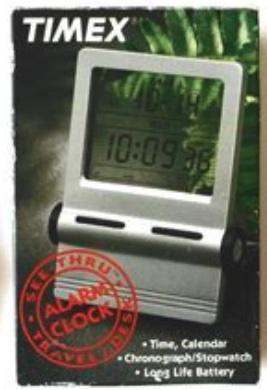
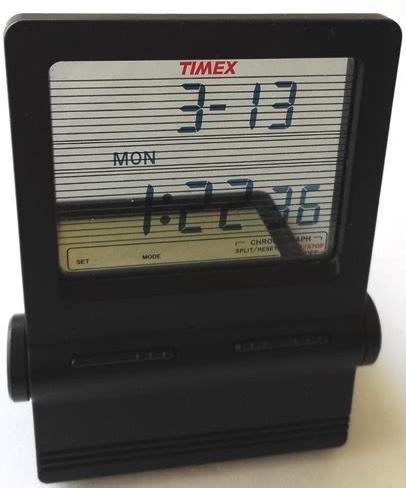
“Van der Valk” television series (remake), season 3, episode 3 (2 July 2023): Part of the episode is a paralyzed invalid on life support, who supposedly may be able to hear — so of course she must have…
A Beosound 9000 and a CD holder star in this scene, set in a classic VHNWI Amsterdam canal house (alongside their co-star actor Darrell D’Silva):
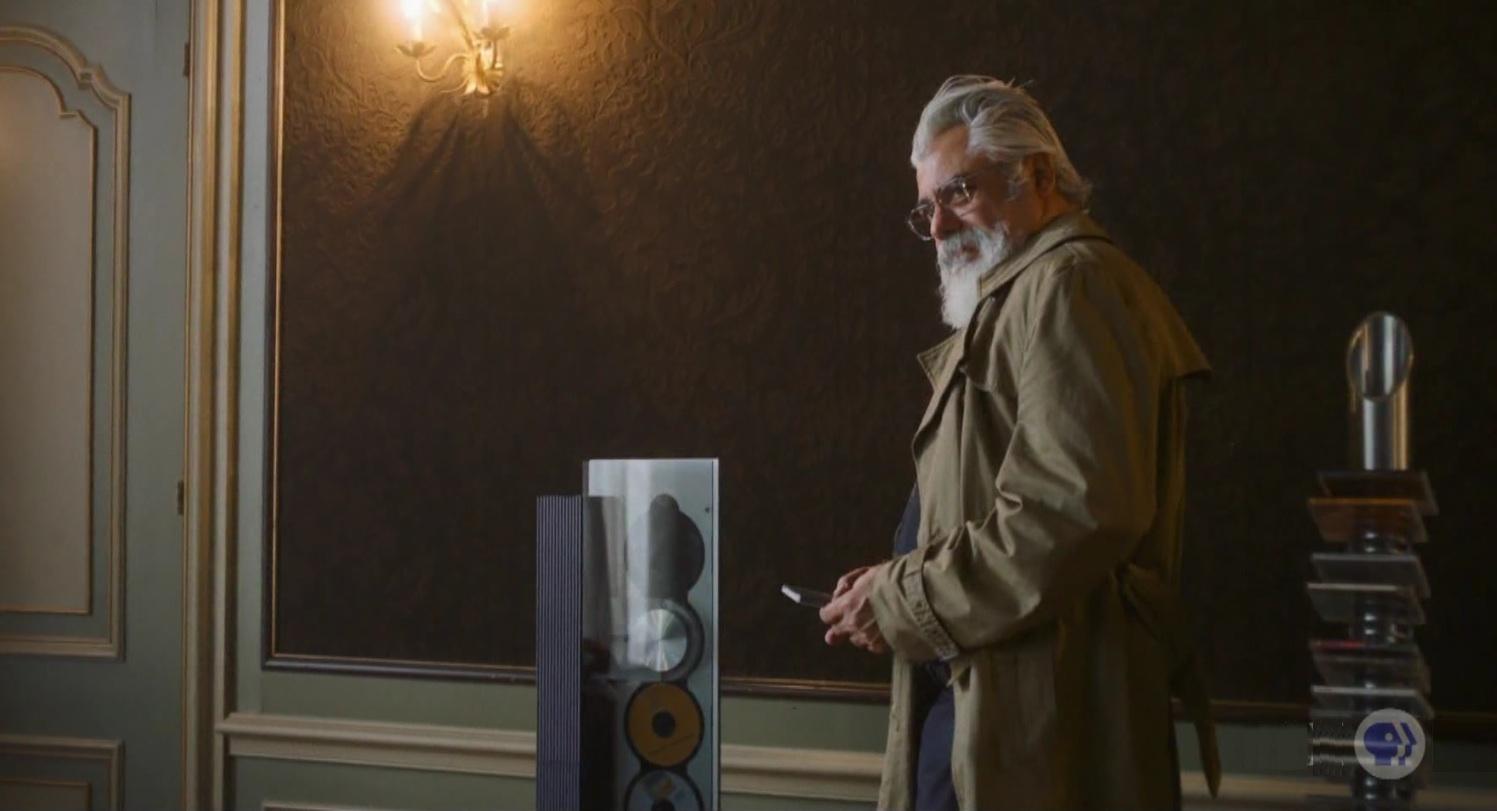
It turns out that the CD holder is lighted! (oh, and actor Marc Warren too):
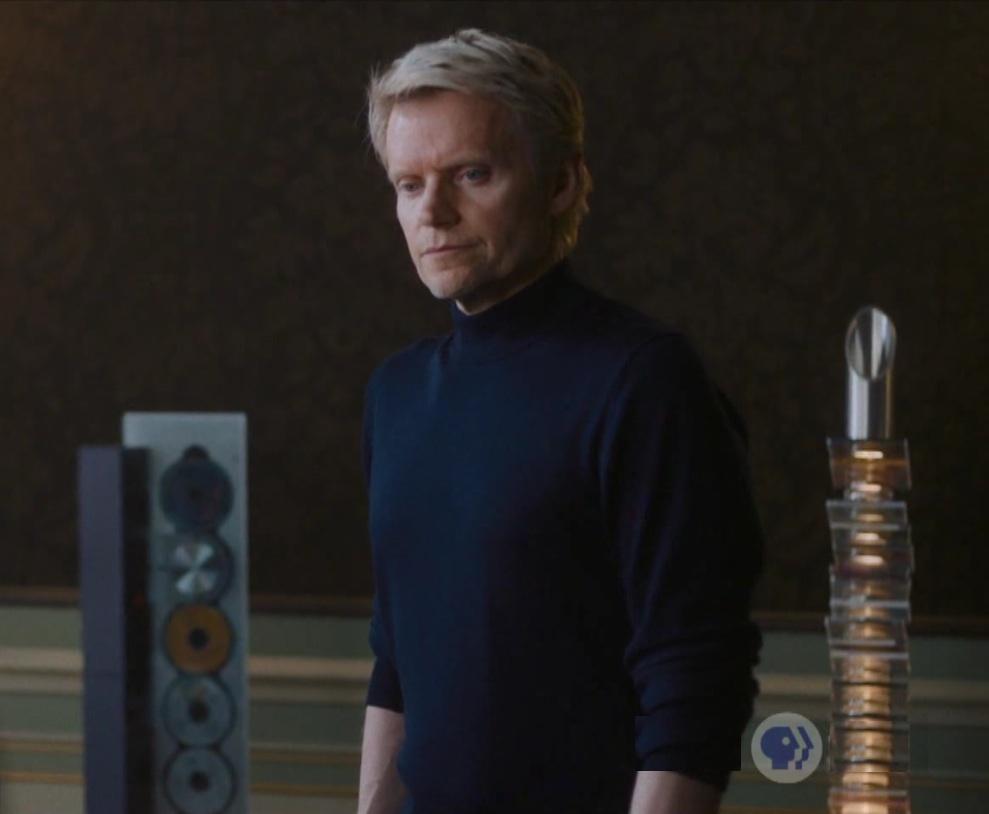
We see one Beolab 8000 hiding behind the hospital equipment for the invalid (actress Esra Abdioglu):
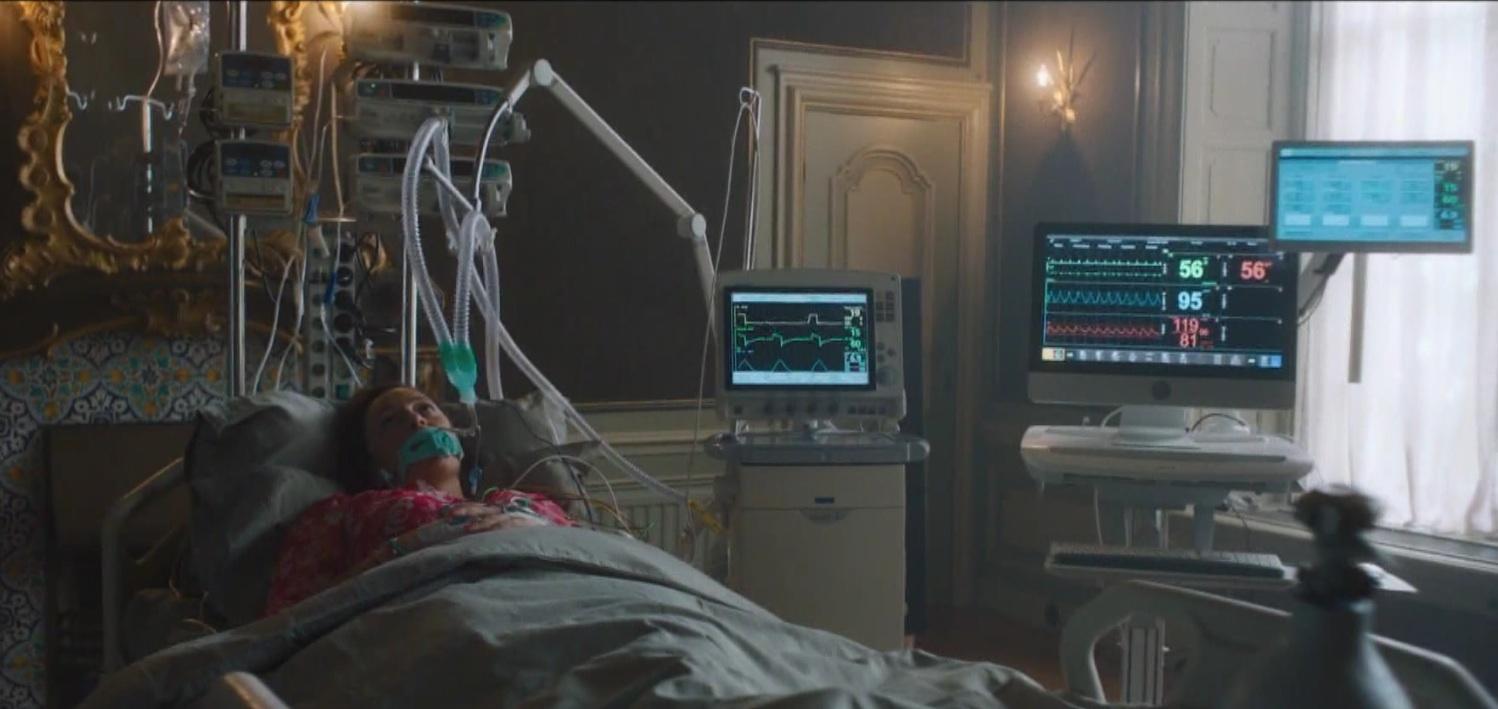
And the BS9000 gets its own panning action shot!
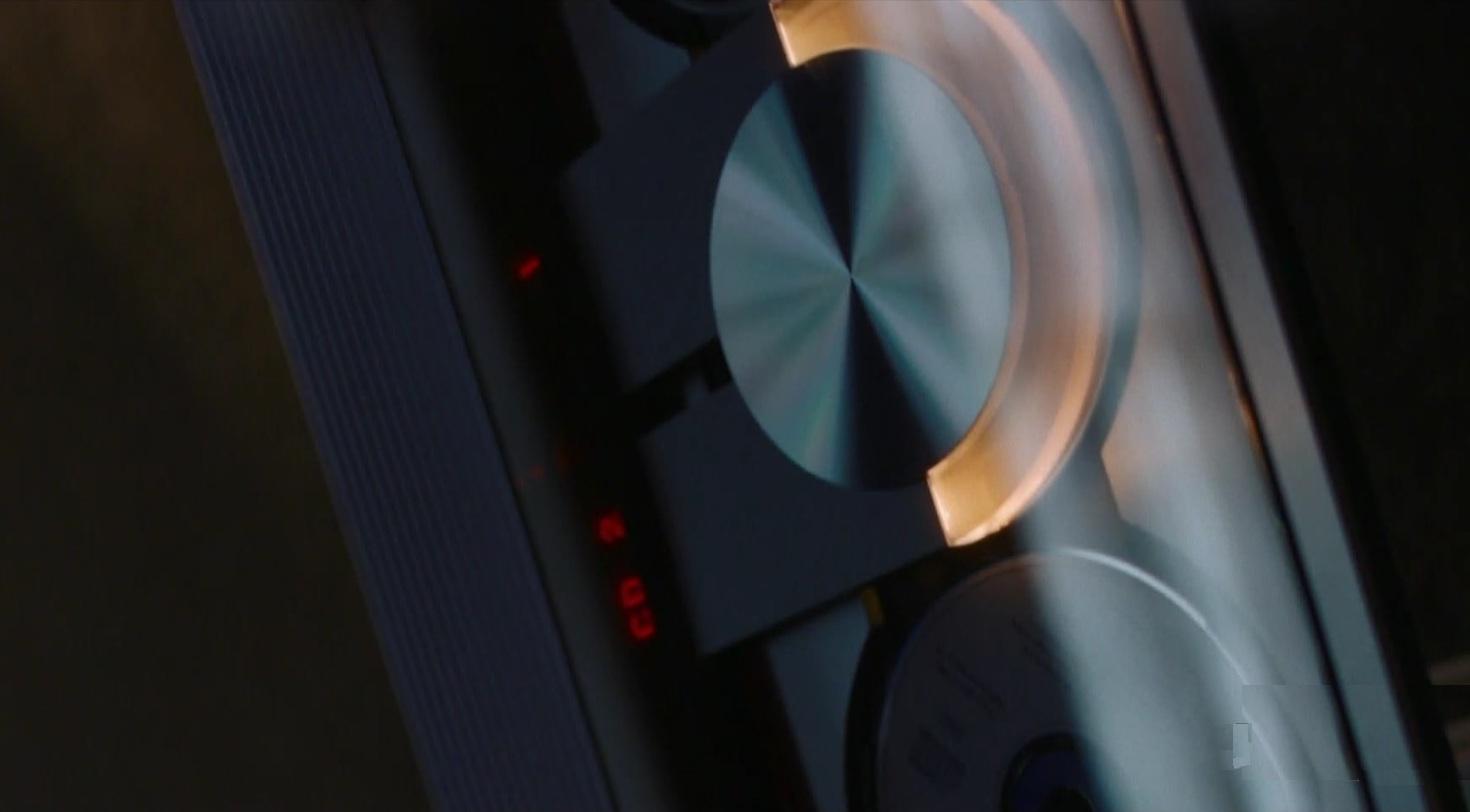
Third-party confirmation for Beosound 2 (mk.1): The PDF instructions above and its embedded links to firmware, were reported to successfully resurrect a Beosound 2 mk.1 which had lost its S/N and Type, on Beotalk podcast #270.
@mikipedia reported the symptoms of the failure were “everything worked except the App,” i.e. the internal webserver, Airplay response, Bluetooth playback, and connection to Wi-Fi, all functioned as originally designed, just the App could not “see” the unit to add it. The failure occurred after the unit was factory-reset because it would be newly added to an account & a Wi-Fi network.
@Beowillie reported being unable to find this info doing searches in BeoWise. He speculated that the loss of serial number, which does not happen often, but apparently often enough to warrant the repair notes, was the result of a CMOS NVRAM battery discharging after the unit being left unplugged. (Apparently in @mikipedia’s case that was ~2 years?) But he could not account for such cause, because battery failure should have affected many, many units, including those which may have languished on the shelf at dealerships before sale.
Sometimes I miss @Peterpan. (@Didork’s pic is from a Y splitter RCA cable, in case you couldn’t tell.) You don’t need double outputs, do you? Buy 3 of single RCA-male to RCA-male cables: Left single cable goes into the L RCA of the left speaker, right single cable to the R jack of the other speaker (and sub RCA to the sub). 17’s don’t daisy-chain analog RCA input, and each speaker doesn’t need both right and left like Powerlink would be. (Open the diagram in step 4 of https://support.bang-olufsen.com/hc/en-us/articles/360054694571-Beolab-17-first-time-setup in its own window to get full-size. That’s the reason the second RCA line is dotted, you choose one or the other jack. I guess you have to make the L/R switch match too.)
I noticed it’s not a twin RCA output on the Node.
?? Looks like all (3) RCA output on the Node X:

The best solution to your problem? Wires.
Sorry to be so didactic. But you are about to pay an electrician to pull high-voltage AC wires to the hidden floor outlet or whatever, just to power your self-amplified speakers. OK, ask them to pull a low voltage cable (Powerlink multi-conductor) to the same place! Very low additional cost. Or you’re about to run a power cord from your speakers to a convenient wall box. Run the Powerlink cable using well-known, time-honored methods for traversing the perimeter of a room, to the same spot, on the floor underneath the AC wall box, and add a cable sheath to hold both, running from the wall to your speaker.
(This advice is just saving you the trouble of posting in another couple months, “My WiSA connection keeps acting up and my speakers are offline”…:-)
28 September 2023 at 03:42 in reply to: Avant 55 & Beolab 14 – shutdown of Beolab 14 after 30-60 minutes #49358Wild guess, but something to try: Search for the Beoplay A6 heat sink reattachment repair. Same vintage era, same inexpensive price probably means a single-chip amp per channel.
B&O may not break even on their strategy, but a global credit crunch won’t slow VHNWI’s from buying some little bit of kit. The LVMH’ing of B&O follows a well-trod path. Here in the USA even Disney, the epitome of mass-affluent marketing, is now selling upscale multi-thousand-dollar concierge theme park services. You in the UK are used to a similar USA-HNWI-ism, “concierge M.D.s” just to avoid the National Health waits. It’s a sound strategy per se, but whether it will work for audio gear and whether B&O executes it well, are the questions.
- AuthorPosts
